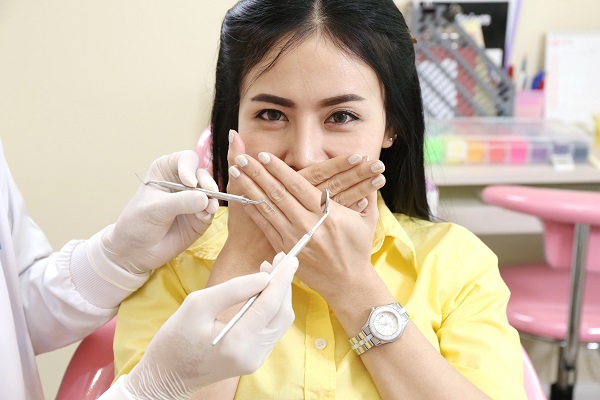Ask a General Dentist: What Dental Exams Can Detect Early Oral Cancer?

Asking a dentist about exams that help detect oral cancer is something every dental patient should do, as the more knowledge one has, the more likely they will be to make regular appointments to undergo an oral cancer examination. Dental patients are encouraged to ask a dentist any question they have, as this is ideal when it comes to getting the correct answers.
Ask a general dentist
Asking a dentist about potential dental problems, including oral cancer, is a great idea for all patients. When dental patients are knowledgeable about how to take ensure their good oral health, they are more prone to having a healthy mouth. Examples of questions patients can ask include how to improve their oral health, what types of oral products they should use, how to stop grinding or clenching their teeth and how to prevent an oral cancer diagnosis.
Types of dental exams for oral cancer
The list below includes four types of dental exams that can help detect whether or not a patient has any signs of oral cancer.
Comprehensive dental exams
A comprehensive dental examination is performed when it is a patient's first time visiting a dental office or when a patient has not made an appointment in a long time. This type of dental exam is one that thoroughly checks a patient's head, neck, soft tissue, gum tissue and occlusion, which often includes X-rays. According to Cleveland Clinic, comprehensive dental exams not only check for tooth decay and gum health, but they also examine one's entire mouth, head, and neck area.
Periodic oral exams
A periodic dental examination refers to any subsequent exam that takes place after a patient's initial comprehensive exam. Some patients will need to schedule a periodic exam every six months, while others will need to schedule periodic exams every 12 months. This exam is compared to the patient's comprehensive exam, allowing the dentist to keep track of the patient's dental health. Periodic exams often include oral cancer screenings.
Limited oral exams
A limited dental examination is performed when a patient is showing any symptoms of dental problems and thus need to be seen by a dental professional as soon as possible to address the problem. X-rays are often taken, as this allows for a more detailed look at the patient's mouth and can be very beneficial when it comes to understanding what the exact problem is so it can be addressed. When oral cancer is a concern, a limited examination can be helpful for detection.
Follow-up exams
A follow-up dental examination is a type of exam that needs to be made after undergoing a certain oral procedure, e.g., dental implants. This examination is necessary because it is used to make sure the patient is progressing as they are supposed to after undergoing their procedure, as well as to make sure that that there are no additional existing problems.
When oral cancer is present, patients should undergo follow-up exams after any type of treatment has been administered.
In need of an oral cancer exam?
General dentists are fully trained in performing an oral cancer screening, which means they know exactly what to look for. Reach out today to learn more or to get started.
Request an appointment here: https://osinadds.com or call Tamara S. Osina, D.D.S. at (281) 532-8183 for an appointment in our Richmond office.
Check out what others are saying about our dental services on Yelp: Oral Cancer Screening in Richmond, TX.
Related Posts
A general dentist does more than routine dental treatments like teeth cleanings during checkups. They also screen their patients for issues like oral cancer. Cancer is an out-of-control growth of cells that invade and damage healthy tissues around them. Oral cancer typically manifests as a sore or growth that develops in the mouth that does…
During a dental visit, it would be a good idea to get an oral cancer screening to see if you are at risk of developing oral cancer. According to the National Institutes of Health (NIH), about 49,700 people in the United States are diagnosed with oral cancer every year. Getting screened for this disease will…
Wondering what the signs of oral cancer are? General dentists are specifically trained in performing oral cancer screenings and thus know exactly what to look for. Dental patients can also check for signs in between screenings.Learning how general dentists perform oral cancer screenings will help dental patients know what to expect when undergoing this important…
An oral cancer screening is usually part of a routine general dentistry check-up visit. They become necessary once a person reaches the age of 45. The screening itself is very easy and does not involve pain or discomfort on the patient's end. The dentist will touch the inner tissues of the oral cavity and examine…
